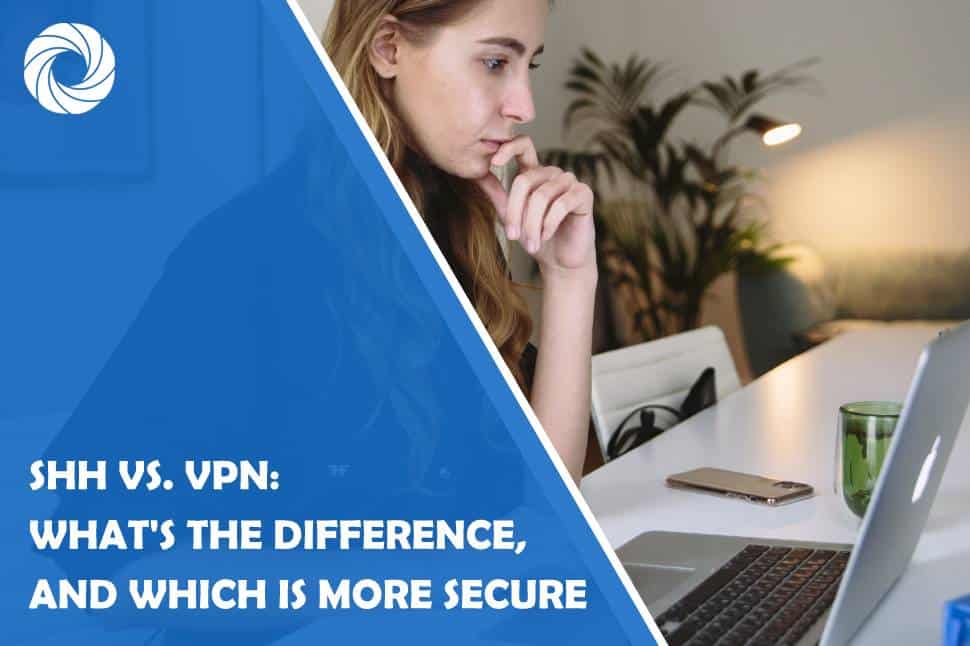In today's digital era, protecting your data and privacy online is of utmost importance. Two key methods of securing your internet connection are SSH (Secure Shell) and VPN (Virtual Private Network). Both services provide excellent security, but they have different purposes and levels of protection. In this article, we will be discussing the differences between SSH and VPN and which is more secure for your needs.
SSH, or Secure Shell, is a network protocol used to securely access remote systems. SSH provides an encrypted communication channel between two computers which allows them to communicate over an unsecured network. It enables users to log in securely from one computer system to another and execute commands on remote machines. Using SSH, users can remotely control their computers from any location with internet access. This makes it possible for users to connect securely with servers, modify files on the server, or run programs remotely all without leaving their desks. Additionally, SSH can provide secure file transfer that would otherwise be vulnerable when transferred over insecure networks. As such, SSH has become one of the most common protocols used for secure data transfer between different systems today.
What is VPN?
A virtual private network (VPN) is a secure connection between two or more remote devices. It allows users to send and receive data over public networks without compromising their safety or security. While VPNs are widely used by businesses, they can also be used by individuals for personal use. The main purpose of a VPN is to protect its user's data from cyber-attacks and other malicious activities by creating an encrypted tunnel between the user’s device and the internet service provider (ISP). This ensures that all data sent through the VPN is safe from interception by unauthorized parties. It also helps to hide the user's IP address, which means that any websites visited will not have access to their location information. Additionally, VPNs can be used to bypass government censorship restrictions as well as geographic content restrictions imposed by streaming services such as Netflix and Hulu.
Benefits of SSH vs. VPN
Secure Shell (SSH) and Virtual Private Network (VPN) are two of the most popular methods for securely connecting to a remote host. Both provide users with security, privacy, and encryption when accessing resources from a remote location. However, there are distinct differences between SSH and VPN that make one better suited than the other depending on the user’s needs. For starters, SSH is a protocol for securely connecting to a remote computer across an unsecured network or Internet connection. It does this by using data encryption technology that scrambles data sent back and forth between two points so it can be read only by its intended recipient. In addition, SSH also provides strong authentication which makes it difficult for someone outside the network to gain unauthorized access.
Both SSH and VPN provide secure connections for accessing remote systems, but it is important to understand the differences between them. SSH offers a more secure connection but does not encrypt data sent over the connection. VPN encrypts all data sent over the connection and is more suitable for activities like streaming video or downloading files securely. It is up to you to decide which solution provides the level of security you require for your remote system needs.
